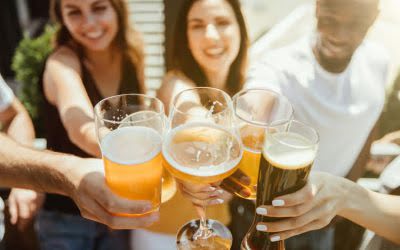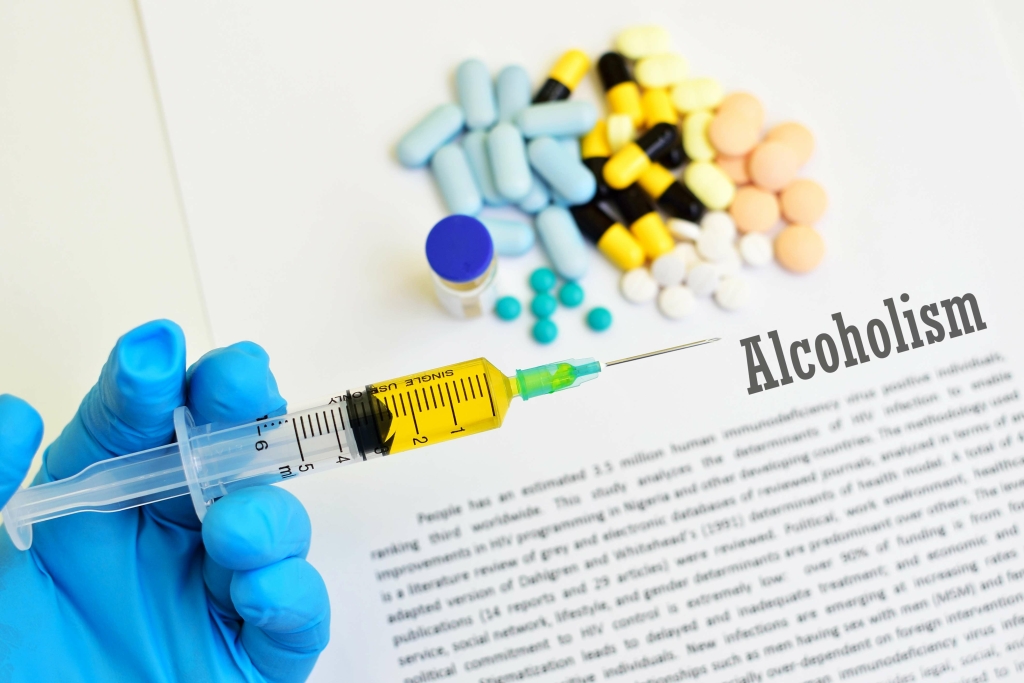Parasomnias Alcohol increases the amount of SWS in the first third of the night. As a result it may precipitate — or increase the frequency of — parasomnias which occur during this stage of sleep. If you’ve enjoyed a lovely three-course dinner with friends — washed down with a few glasses of wine — then it’s the combination of a substantial meal and the alcohol that’ll affect your sleep. It’s also worth remembering that alcohol isn’t solely responsible for disrupted sleep.
Vivid dreams
- Although there’s no evidence that alcohol can cause narcolepsy (sleepwalking), it does disrupt REM sleep, which may make the onset of sleepwalking more likely.
- If you love drinking green tea, the good news is that you may not have to give up a warm cup in the evenings.
- The circadian rhythm is responsible for keeping the body anchored to a 24-hour cycle.
But despite this, even when researchers accounted for factors including age, gender, weight, mental health, and schedules, in a head-to-head alcohol vs. caffeine test, alcohol was still the bigger sleep disruptor. Although http://www.snowflakebase.com/Breckenridge/page/4/ consuming alcohol before bedtime helps you fall asleep faster, the popular beverage negatively affects overall sleep quality. When you consume alcohol before bed, your body metabolizes the alcohol throughout the night.
What alcohol actually does to your sleep cycles
- Consuming alcohol and experiencing restricted sleep reduces alertness during the day.
- People who go to bed with alcohol in their system may be more likely to wake early in the morning and not be able to fall back to sleep, another consequence of the rebound effect.
- If you feel pretty drunk, you’ll probably fall asleep quickly but have a restless night.
- This article will explore the various signs that indicate your liver may be suffering due to excessive alcohol intake, providing you with the knowledge to take proactive steps toward better health.
- The more alcohol a person drank, the higher that person’s heart rate was during sleep and this even occurred with small amounts of alcohol.
- When it is damaged, its efficiency decreases, leading to a persistent feeling of tiredness.
This condition requires immediate medical attention as it can indicate advanced liver disease. While this cup of green goodness may boast a number of health benefits, Bakovic warns it won’t solve all your health problems – especially insomnia – and it’s all down to its caffeine content. Armstrong, Bilsky and two other student researchers surveyed more than 140 adolescents between the ages of 13 and 18 about their relationship with alcohol, anxiety and sleep. «After the body metabolises the alcohol, the sedating effect wears off, which can contribute to middle-of-the-night awakenings», Conroy said. Aswani-Omprakash says she’s never had a doctor talk to her about alcohol’s potential impact on IBD. Some doctors, however, feel that it’s very important to have the discussion.
Are there signs that suggest it’s time to cut back or completely quit drinking?
Sipping on a glass of wine or whiskey can help you drift off into dreamland quicker than without. “If there are actual lab abnormalities, it’s a sign that you need to take a break,” Bonthala says. Peters is a board-certified neurologist and sleep medicine specialist and is a fellow of the American Academy of Sleep Medicine. If you have concerns about your sleep or alcohol use, talk to your health care provider – they can help evaluate your routines and sleep to note if adjustments should be made. If you’ve had alcohol, you should refrain from using medications that can induce sleepiness or aid with sleep, such as Ambien, Benadryl, Tylenol PM and even melatonin. Taking these with alcohol can be dangerous as alcohol depresses the central nervous system on its own.
Ways Alcohol Disrupts Your Night
- This practice can mask an underlying sleep disorder such as obstructive sleep apnea which may be causing the insomnia in the first place.
- Still, you may think drinking before bed is a good idea if you have trouble relaxing and falling asleep.
- In two separate studies, up to 28% of people said they use alcohol to help them fall asleep.
- «I don’t believe there is sufficient scientific research to help me confidently support this claim,» says Bakovic.
In a 2018 study, researchers found that alcohol increases this risk by 25%. Having a beverage containing alcohol in the evening from time to time may slightly disrupt sleep, but consuming alcohol for multiple nights in a row or every night carries a greater risk of insomnia. People who drink alcohol before sleep https://www.animetank.ru/anime-osen-2011/ are also more likely to experience breathing difficulties at night. They will also experience shorter periods of sleep, resulting in less restful sleep overall. There is a higher prevalence of insomnia in people with ADHD and AUD, but consuming alcohol to manage insomnia generally worsens sleeplessness.
Table of Content
First, alcohol affects everyone differently because of a slew of factors, like age, biological sex, and body composition, just to name a few. REM sleep has a restorative effect and plays a role in memory and concentration. Poor or insufficient REM sleep has been linked to not only grogginess the next day, but also a higher risk of disease and early death. Alcohol https://topdialog.ru/2012/03/06/%D0%BE%D0%BF%D1%80%D0%BE%D1%81-%D1%82%D1%83%D1%80%D0%B8%D1%81%D1%82%D1%8B-%D0%BF%D1%80%D0%BE%D1%82%D0%B8%D0%B2-%D0%BF%D0%BB%D0%B0%D1%82%D0%BD%D0%BE%D0%B3%D0%BE-%D0%B8%D0%BD%D1%82%D0%B5%D1%80%D0%BD/ before bed has been shown to lead to fragmented sleep and frequent waking. The Sleep Foundation editorial team is dedicated to providing content that meets the highest standards for accuracy and objectivity. Our editors and medical experts rigorously evaluate every article and guide to ensure the information is factual, up-to-date, and free of bias.
But even a regular, moderate routine of two to three drinks a day is enough to create sleep and performance problems for many people. For many people who drink moderately, falling asleep more quickly may seem like an advantage of a nightly glass of wine. But part of a smart, sleep-friendly lifestyle is managing alcohol consumption so it doesn’t disrupt your sleep and circadian rhythms. Insomnia is a common problem for many adults, but it is not uncommon to experience it in the short-term and long-term after quitting drinking. It is characterized by difficulty falling or staying asleep, which can lead to daytime drowsiness, trouble concentrating, and other negative health effects.



